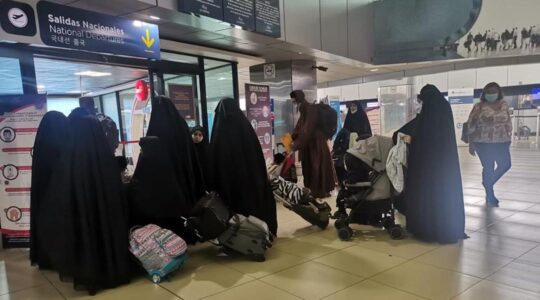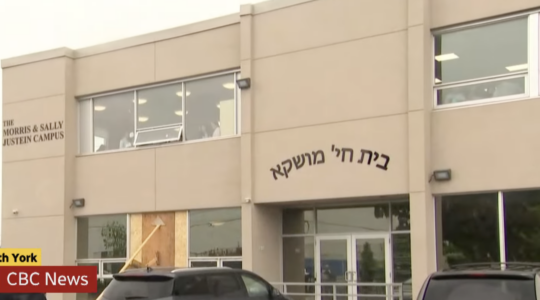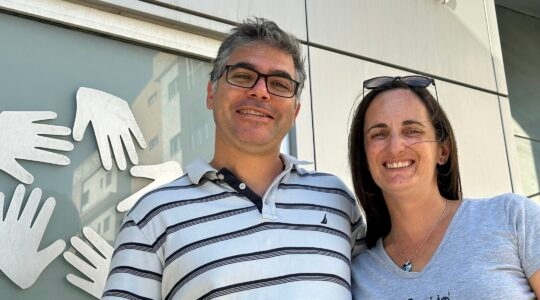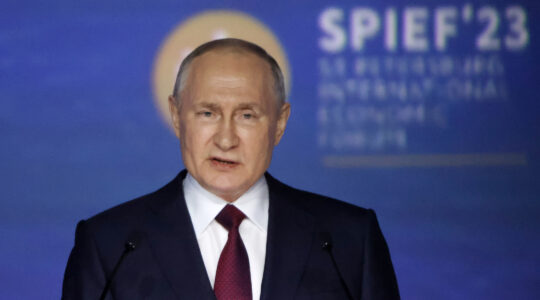WARSAW, Poland (JTA) — Some 100 people attended a ceremony commemorating the victims of the pogrom in Jedwabne in northeast Poland.
For the first time ceremony was attended by Bishop Rafał Markowski, president of the Council for Religious Dialogue and the Committee for Dialogue with Judaism, who said that the Catholic Church prays for the Polish perpetrators of the murder and apologizes for it.
On July 10, 1941, a few dozen local perpetrators burned alive more than 300 Jews in a barn in the village of Jedwabne.
Markowski recalled that his predecessor, Bishop Mieczysław Cisło, had said that if the Nostra Aetate Declaration, on the relationship of the Church to non-Christian religions, was announced in 1939, there would not have been a pogrom in Jedwabne or in Kielce in 1946, or perhaps there would not have been the Holocaust.
Emil Jeżowski, from Israel’s embassy, read a letter from Israel’s Ambassador to Poland Anna Azari, in which she emphasized that Israel remains friendly as it watches the difficult path being taken by Poland to learn its history.
“The demands of our religion are for us to remember and not forget,” said Anna Chipczyńska, chairman of the board of the Warsaw Jewish Community, who was attended to during the ceremony for the first time by a bodyguard.
The ceremony also was attended by, among others, Mateusz Szpytma, deputy president of the Institute of National Remembrance; Wojciech Kolarski of the Chancellery of the President Andrzej Duda; Aaron Fishman of the U.S. Embassy, and Rolf Nikel, Germany’s ambassador to Poland.
Isaac Lewin, whose family was murdered during the pogrom, came from Israel to recite the Kaddish prayer at the site, as he does every year.
A monument commemorates the events.
The pogrom was described in detail by Jan Tomasz Gross in his 2000 book “Neighbors”. The Institute of National Remembrance began an investigation into the pogrom, but three years later the investigation was discontinued, and Polish nationalists have tried to discredit Gross and blame the pogrom on communists and the Nazis.
In 2001, President Aleksander Kwaśniewski apologized for the pogrom on behalf of him and Polish people “whose conscience is touched” by the crime.
RELATED:
75 years after Jedwabne pogrom, Poland wrestles with evidence of complicity
JTA has documented Jewish history in real-time for over a century. Keep our journalism strong by joining us in supporting independent, award-winning reporting.





